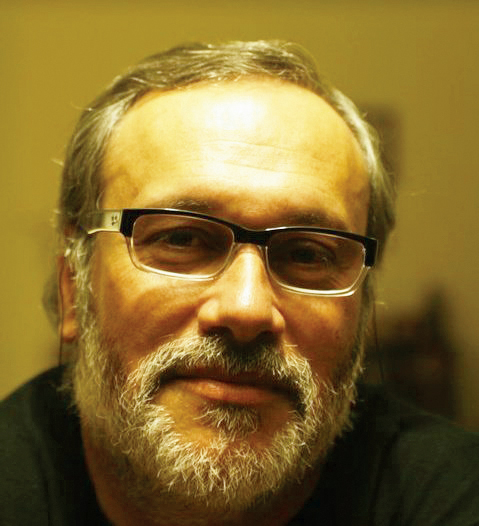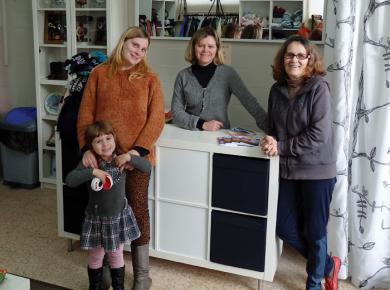Posted: May 19, 2016
Economic Inequality: Exploring our shared commitment to pursuing shalom
As a global communion of Anabaptist-related churches, we share a common commitment to pursuing shalom. In this pursuit, we believe in seeking justice and sharing our resources, be they material, financial or spiritual. Yet our tremendous diversity means that we carry out this commitment in very different ways. In the April 2014 issue of Courier/Correo/Courrier, leaders from across our fellowship write about different ways in which Anabaptists approach issues of economic inequality – and the ways we, as shalom-seeking followers of Christ, address the wealth gaps in our communities.
An Open Hand, Not a Handout
Portugal is a small country. Yet despite our size we have always had a fascination with growth and expansion. In the past, we took to the sea and found new countries and new ways to develop economically. That era of discovery and exploration made our country more international in its outlook. In fact, it wouldn’t be much of a stretch to call Portugal the very first global country.
But at one point in our history, Portugal simply stopped in time. Primarily, this occurred because of a dictator that “froze” our country – economically, politically, and socially – for more than 40 years.
When Portugal won its freedom from dictatorial rule on 25 April 1974, the country expected that a new wave of development would come. Twelve years later, when we joined the European Union (EU), we immediately saw the benefits of that affiliation – new infrastructures were built, new employment opportunities arose, and new investments strengthened our economy. The time had come for Portugal to “catch up” with the rest of Europe.
Unfortunately the politicians neglected to see the reverse of the development coin. Year after year the Portuguese government overspent its budget. Its debt grew so big that the EU, the European Bank and the International Monetary Fund had to intervene in the summer of 2011.
Suddenly, Portugal’s economic foundations collapsed. The unemployment rate rose to 16 percent. (Recent figures put that number closer to 20 percent.) Emigration started again, mostly among the younger generations. The struggle to survive once again became a present reality.
The Mennonite Brethren in Portugal started to see that reality in our own communities. We knew we had to respond in some way. One of the first things we did was ask our members to start bringing a gift every Sunday – small items that could be delivered to those in need. In addition, for the last few years we have received donations from Germany – mainly clothes, appliances and furniture as well as food. These donations provide yet another way to reach out to the poor around us.
Yet we wanted to avoid the “easy thing” of just giving handouts. So in October 2013 we launched a thrift store – a small one but, through God’s help, one that continues to develop well. Located in a poverty-stricken community just outside the capitol of Lisbon, the store stocks the materials we receive from Germany and provides low-income people with the chance to purchase clothes and other goods at a symbolic price. We think it’s much more effective to have the customers pay even a small amount rather than just give the stuff away. And what we’ve found is that the customers, despite their financial problems, can afford to buy things.
Even if someone doesn’t have the money, we still find ways to provide the dignity of exchange: they can bring a kilo of rice, a pack of spaghetti or another food item – for instance – to trade for what they need. In one instance, an extremely poor man who lives on the streets wanted to buy a coat, but he didn’t have the money at that point. We told him he could pay later, and gave him the coat. At the end of the month, he returned to the store to honor his commitment.
In this way, we are teaching people to be responsible, even when they have to pay only small amounts.
Another real impact of our little store is the opportunity it provides for witness. Customers are often impressed by the way we witness to God’s love. We have Christian literature free for anyone who comes to browse our shop, and occasionally we see members of the local community coming to our Sunday worship service. We find this is also a way for them to experience Christ. Maybe they can make a commitment to the Lord.
Once a month we gather together with the local community for a meal. That day is special because we see people coming not only to have a substantial meal, but also to have the chance to listen to the Gospel for about 10-15 minutes. Strategically we conduct this preaching service between the main meal and the dessert: people have a brief “time out,” listen to the Word of God, and afterward enjoy a delicious treat.
Our church community is made up of humble people. And yet because of our Anabaptist DNA – evident from the time the Mennonite Brethren work started in Portugal in 1984 – it’s very easy to mobilize our churches to extend love and bless those around us. It’s not a matter of doing good for charity’s sake. Instead, we act compassionately toward one another because we recognize that in God’s Kingdom we are all brothers and sisters – siblings who gather to praise God every Sunday, some wealthy and some penniless, but unified in Christ.
That is why our Mennonite Brethren community is very involved, glad and willing to extend an open hand – not a handout – to support those in need. As a result, we see our churches growing and we see God teaching and impacting the lives of the Portuguese people.

José Arrais is president of the Associação dos Irmãos Menonitas de Portugal (Association of Mennonite Brethren of Portugal).

Join the Conversation on Social Media
FacebookTwitterInstagramFlickrYouTube